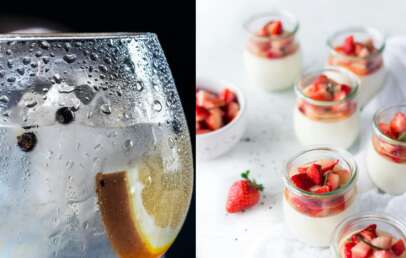Just remember the old saying that “ignorance is bliss.” People started saying that whenever ago because it’s really true. There are certain truths, hard and brutally eye-opening truths in this life, that we’re simply better off not knowing about in the first place. When it comes to the book of secrets that the food industry is keeping under lock and key (seemingly literally sometimes), there are some daunting revelations, to say the very least.
1. There’s often nothing natural about those natural flavors.

Yes, as fate would have it, those allegedly natural flavors aren’t so natural at all. “The “natural flavors” are oftentimes just big jugs of glycerin with hyper concentrated flavoring in it. Banana flavoring is fairly flammable.” So, don’t go messing around with banana flavoring any time soon.
2. Apparently organic honey has been lying to us about its origin story all along.

Take a deep breath. We know that wasn’t an easy truth to digest. But Redditor u/toad__warrior writes, “Beekeeper checking in – there is no such thing as organic honey. I do not treat my bees with chemicals, but I have no idea where they get their nectar. A bee can fly up to three miles from a hive to get nectar. It is virtually impossible to guarantee they have not gotten nectar from a chemically treated source.”
3. Chocolate covered donuts might not actually be covered in typical chocolate.

It’s all too much already. Alas, Redditor u/gil_beard writes, “When I worked at a mass production bakery the chocolate for the chocolate covered doughnuts came in giant frozen blocks of 4×4 peices and contained no actual chocolate what so over. When unfrozen it was like some sort of nasty smelling paraffin wax that I would break up with a hammer and place into a melter that would then pour over the doughnuts.”
4. Your restaurant meals are far saltier and more soaked in butter than you give them credit for.

Looks can be deceiving. It turns out that some of those finely plated meals you love to order at restaurants are absolutely pummeled by salt and butter. At least the flavor is enhanced, but the toll it can take on one’s health is obvious. Take it from the folks at the National Institute of Health (NIH). The NIH reports that the average total daily intake of sodium from any and all foods was notably higher for people who consumed at least one of their foods from a restaurant than those who did not.
5. Olive Garden makes all their pastas every morning (partially cooked), and then flash cook pastas when they’re ordered.

Look. This really might not hit as hard as you might assume a “secret” from the likes of Olive Garden would. This rings especially true if you’re only making your pit stops at Olive Garden for the breadsticks anyways. But, alas, as it turns out Olive Garden apparently makes all their needed pastas for the entirety of a given day anywhere from 8-10am each day. They only partially cook these pasta, and then they flash cook these same pastas in scalding water when customers order them. Oh, as a last bit, the brand is Barilla. Honestly, it could be much worse.



